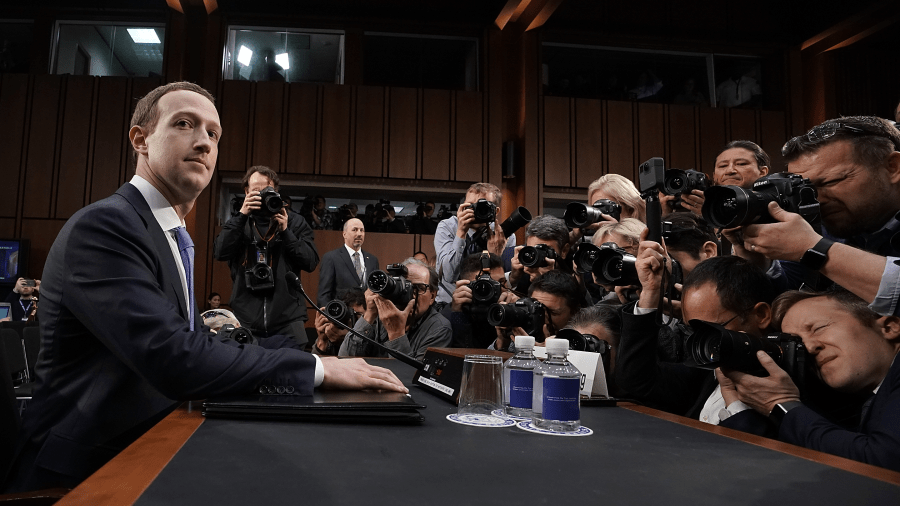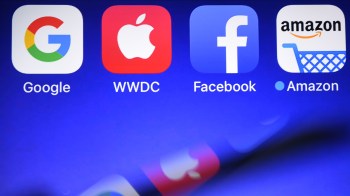A “vehicle for antitrust change” picks up steam

The latest effort to reign in Big Tech cleared a procedural step in the Senate last week, moving one step closer to a floor vote.
The American Innovation and Choice Online Act would prevent big tech firms from giving preference to their own products and services. Like Amazon ranking its Amazon Basics product line above those of its competitors, for example, or Google serving up its own map results over Apple’s. According to some lawmakers, moves like these unfairly stifle competition.
Though the bill has bipartisan support, bipartisan concern over the details means it’s getting hit with requests for changes on questions like privacy and who exactly it applies to.
Will Rinehart, a senior research fellow at the Center for Growth and Opportunity, joined us to discuss the bill’s development. The following is an edited transcript of our conversation.
Will Rinehart: There’s been a lot of change over this bill, in particular, primarily because it seems to be this legislative vehicle for antitrust change, which is something that a lot of senators and representatives and policymakers have wanted. But also, I think leaders see this as the way to potentially make movement on antitrust before things really heat up in the election cycle later in the year.
Kimberly Adams: And, of course, the tech industry is very involved in lobbying for this, some high-powered folks had been directly involved in trying to shape the way this bill turns out.
Rinehart: Yeah, Tim Cook in particular has come out directly against it. Sundar Pichai of Google has also been quite vocal about it. There’s a lot of concern in the tech community about this bill, because it would add the Federal Trade Commission to a number of the most important business decisions that exist in the operation of these large platforms. I mean, there’s a bit of a process to actually start all of this. So to even allow this bill to affect platforms, they have to be designated as a covered platform. And that takes a little while, I believe it’s about 120 days. And I think that they’re worried very much about this process, in addition to all these other cases and other things that are going on, there’s a whole bunch of other regulatory movement afoot, beyond what’s happening at the federal level, that I think they’re very worried about.

Adams: What other legislation are you paying attention to at the moment?
Rinehart: So I’ve been closely following what’s occurring at the state level. There’s a whole bunch of different states that have brought cases against the big companies that could substantially change the way that these companies operate. But on top of that, states, in particular, really are thinking about changing the laws and changing rules to go after large platforms. I think the real big shift and change was in 2018, when California effectively created their own privacy law. And in doing so, it really opened up the floodgates for different sorts of bills to come through against these large tech platforms. In Florida, there’s been some content moderation bills that have been passed. You’ve seen some similar stuff in Texas, at least to me, I see all of these kind of connected to each other as different parts of a broad fight against these large moneymakers.
Adams: Another part of that fight, we also saw the Department of Justice and the Federal Trade Commission open up public comment last week to possibly changing merger regulations. Where do you see that going once the comment period ends?
Rinehart: So what’s happening now is, or at least in the last ten years, a lot of these large tech companies have bought companies that aren’t specifically in their industry, but are in a related but connected industry. Probably the big case, or the big example of this would be Comcast, NBC Universal. So they bought a content player, despite being, as Comcast, they’re an internet provider. They’re in related industries, but they’re not in the same industry. And this is what the Federal Trade Commission is really looking to shift and change, is to look at those what are called “vertical mergers,” mergers in two different industries by a company. And this really could affect, pretty dramatically, a lot of different companies. The big one that I think could be really interesting would be Google. Google has bought a lot of advertising industries and ad tech companies over the last couple years. And if those rules were to change, it would make it a lot stricter, their business dealings in the future. But it also could mean that the Federal Trade Commission and the Department of Justice could potentially go in and try to break up Google from its previous mergers. And I hope to at least suggest — or, at least, I am suggesting now obviously, very clearly — that we’re seeing a lot of things happening all at the same time and, in fact, all this movement really has occurred in the last year or two years. Which to somebody who has been following this now for most of my career, it really has been quite fascinating to watch. And there’s a lot that’s going on, even for somebody who’s working on this full time, to keep up with.
Adams: Why now?
Rinehart: I think that the reason why you’ve seen changes now is because both the Republicans and the Democrats, people who are on both sides of the aisle, really feel as though these large tech companies are not being properly — I don’t want to say properly put in their place, but I think it’s something along those lines. They see this power that is concentrated in these large tech platforms. They want to determine how speech occurs, or they want different content moderation practices, they want to do something on privacy because they believe that data collection is too extensive. I think a lot of these are justified concerns, at least for policymakers. My organization, we’ve done a whole bunch of polling and when we actually ask people, normal voters, what they care about, and if they care about these issues, they don’t typically rank all that high. There’s other, broader concerns that typically rank much higher. But these are still concerns that, broadly speaking, seem to worry people. What I think that you’ve seen in the last couple of years is that that people want something to be done. It’s pretty clear they don’t necessarily know what should be done, but they just want something to be done. All of these different laws that we’ve been talking about, the American Innovation and Choice Online Act, in particular, is really the “something” to do.
Related Links: More insight from Kimberly Adams
For more on what’s next for the American Innovation and Choice Online Act, Politico’s Morning Tech newsletter explains the obstacles ahead.
And Axios has more on those state-level tech battles likely to come to a head this year, including new privacy laws in Virginia and Colorado and laws on content moderation, digital taxes and cybersecurity that are either in the works or already being fought in the courts all over the country.
The future of this podcast starts with you.
Every day, the “Marketplace Tech” team demystifies the digital economy with stories that explore more than just Big Tech. We’re committed to covering topics that matter to you and the world around us, diving deep into how technology intersects with climate change, inequity, and disinformation.
As part of a nonprofit newsroom, we’re counting on listeners like you to keep this public service paywall-free and available to all.
Support “Marketplace Tech” in any amount today and become a partner in our mission.


















